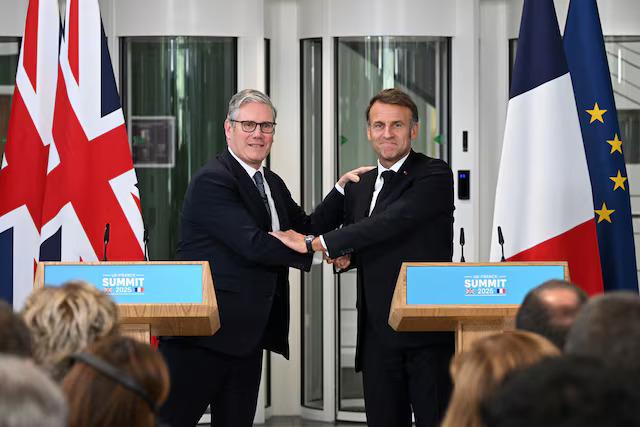A new deal between the UK and France has started to reduce the number of migrants crossing the English Channel in small boats. The “one in, one out” system allows the UK to send some migrants back to France while taking in others through safe and legal routes.
The deal was announced by Prime Minister Keir Starmer and French President Emmanuel Macron on 10 July and approved by the European Commission. It officially began on 5 August, with detentions set to begin the following day, 6 August.
Under this new plan, migrants who enter the UK illegally on small boats will be detained right after arrival. Some of them will be sent back to France, but at the same time, the UK will take in legal asylum seekers—only if they have never tried to enter the UK illegally before.
Who will be sent back to France under the deal?
The government has not shared full details, but the plan will mostly focus on adult migrants. Families will not be separated. Migrants will be held in removal centres before they are returned to France. The UK says this will happen every week.
So far, around 50 migrants are expected to be returned to France each week, although Home Secretary Yvette Cooper said there is no fixed number yet. She explained that the plan is just a pilot and numbers could increase later.
The returns will only affect new arrivals and not migrants already living in the UK. Ms Cooper stressed that this is a trial to see how the system works and to adjust it over time. She also added that the UK is working to reduce “pull factors” that attract illegal migration.
Other actions are also being taken. The Home Office is planning a crackdown on illegal workers, especially in the gig economy. Companies like Uber Eats, Deliveroo, and Just Eat will now increase ID checks to stop migrants working without proper documents.
For the first time, French police are also allowed to enter the water at northern beaches to stop boats before they leave. Recently, they were seen destroying small boats used by smugglers. The UK, which helps fund this effort, is asking France to allow more action in deeper waters as well.
This new deal marks a big change in how the UK and France are handling migration. While the plan is still in its early stages, both governments hope it will discourage illegal crossings and encourage safer, legal migration paths.

